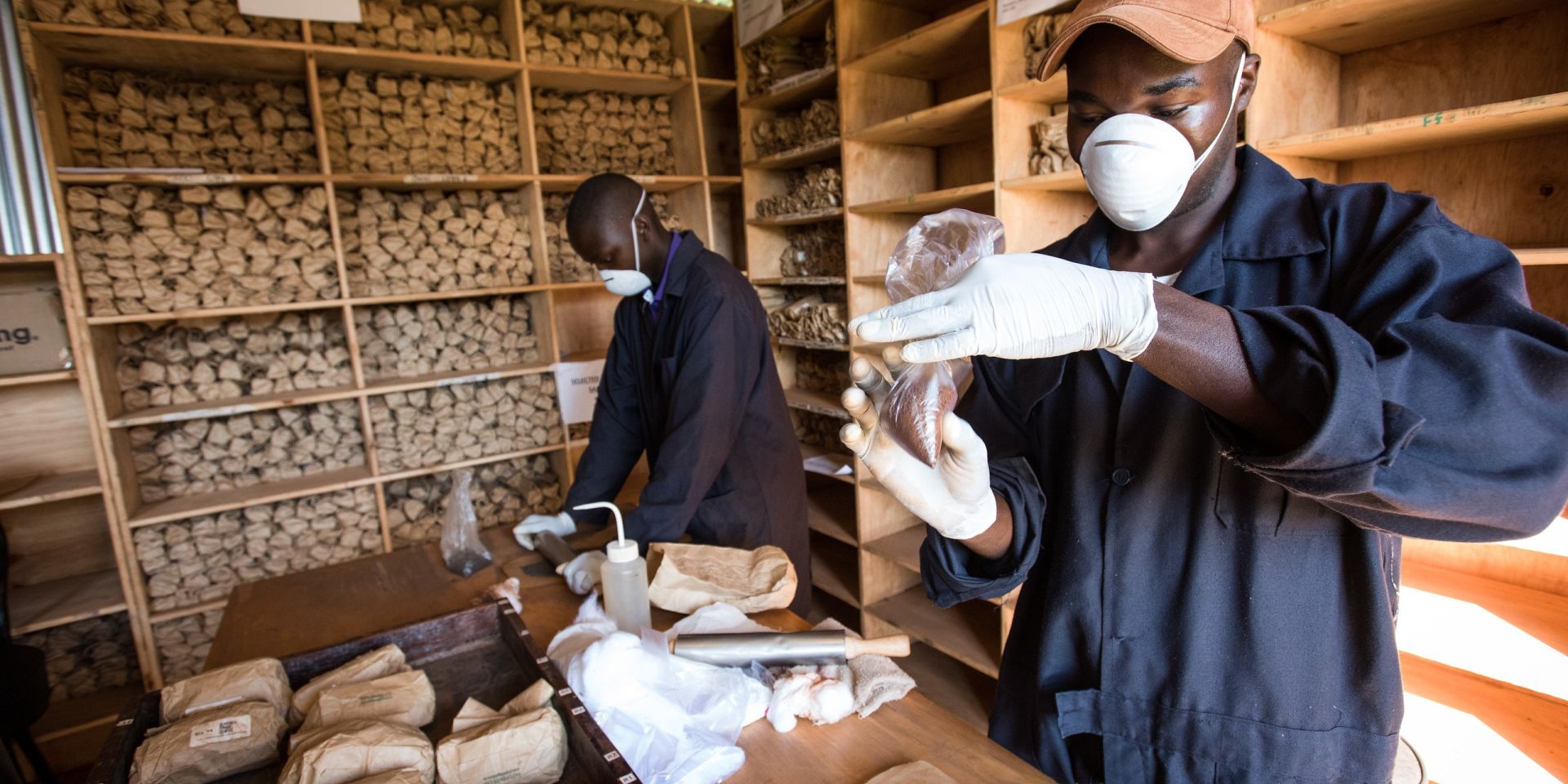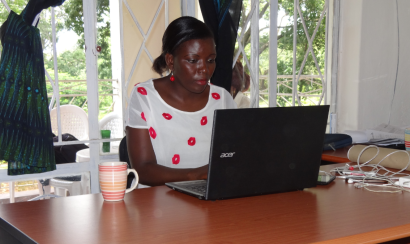Behind the Scenes at One Acre Fund’s Soil Lab
It’s delivery day at One Acre Fund’s soil analytics laboratory in Kakamega, Kenya, and there’s a flurry of activity. A shipment of almost 3,000 soil samples has just arrived by bus from Rwanda, and the staff needs to process the order before another big batch arrives next week. There are nine or 10 lab assistants dressed in long blue coats, protective masks, hats, and rubber gloves working furiously in the yard and an adjacent outbuilding. The place has the look of a crime scene or the opening shots of a disaster movie. There is, in fact, a quarantine sign on the outside gate, but it’s meant to protect the soil samples from being contaminated by visitors, and not the other way around.
All of the soil samples from Rwanda have arrived in separate, sealed paper bags, each labeled with the name and location of the individual farm where it came from. Thee technicians at the laboratory will first dry the soil, crush it into a powder, and run it through a sieve to remove any foreign particles. After that, a portion of each sample will be placed into a petri dish for analysis. Eventually, the samples will be taken inside and run through a mid-infrared spectrometer, an instrument that can determine the exact makeup of the soil, down to a single element.

With this data, we can evaluate One Acre Fund’s impact on clients’ soil health. In the future, we also hope to tailor recommendations for individual farmers, helping them determine the best seed varieties, fertilizer mixes, and agronomic practices for their land. Ultimately, these high-precision recommendations should lead to additional increases in food production and incomes.
“The science we’re doing here helps us know exactly what is in the soil,” says Chrispinus Shibachi, a supervisor who’s trained in analytical chemistry and has been working at the laboratory since shortly after it opened in late 2015. “When farmers get the right information and do the right things, they can put enough food on the table.”

Healthy soil is one of the most crucial elements needed for agriculture, and sustainable farming is impossible without it. The work at One Acre Fund’s laboratory is part of a larger initiative to promote healthy soils and find out more about how farming can impact the land. We are in the process of conducting a longitudinal study to evaluate the effects of our operations on soil health. We’re also running a number of trials on potentially impactful soil-health products, and using laboratory results to guide us. One successful trial product that we started offering at full scale to Kenyan farmers in 2017 is agricultural lime, a soil additive often made from pulverized limestone or chalk. Soils in many parts of East Africa are often severely degraded and highly acidic, and lime is one solution to help make farmland more productive.

We also offer a number of training programs to farmers on how to care for soils, including sessions on composting, crop rotation, and planting trees. Samwel Wanjala, who farms one and a half acres of land with his wife Rosemary near Sango village in Western Kenya, says these techniques have made his soil healthier and better able to hold water, even in dry periods such as the 2016 drought. Since enrolling, Samwel’s harvest has more than doubled, and he’s cut fertilizer use in half, thanks to training on how to apply fertilizer in smaller microdoses.
“Every year since we joined One Acre Fund, including this year, we have had enough food,” Samwel says. “There is no more hunger in our home.”




